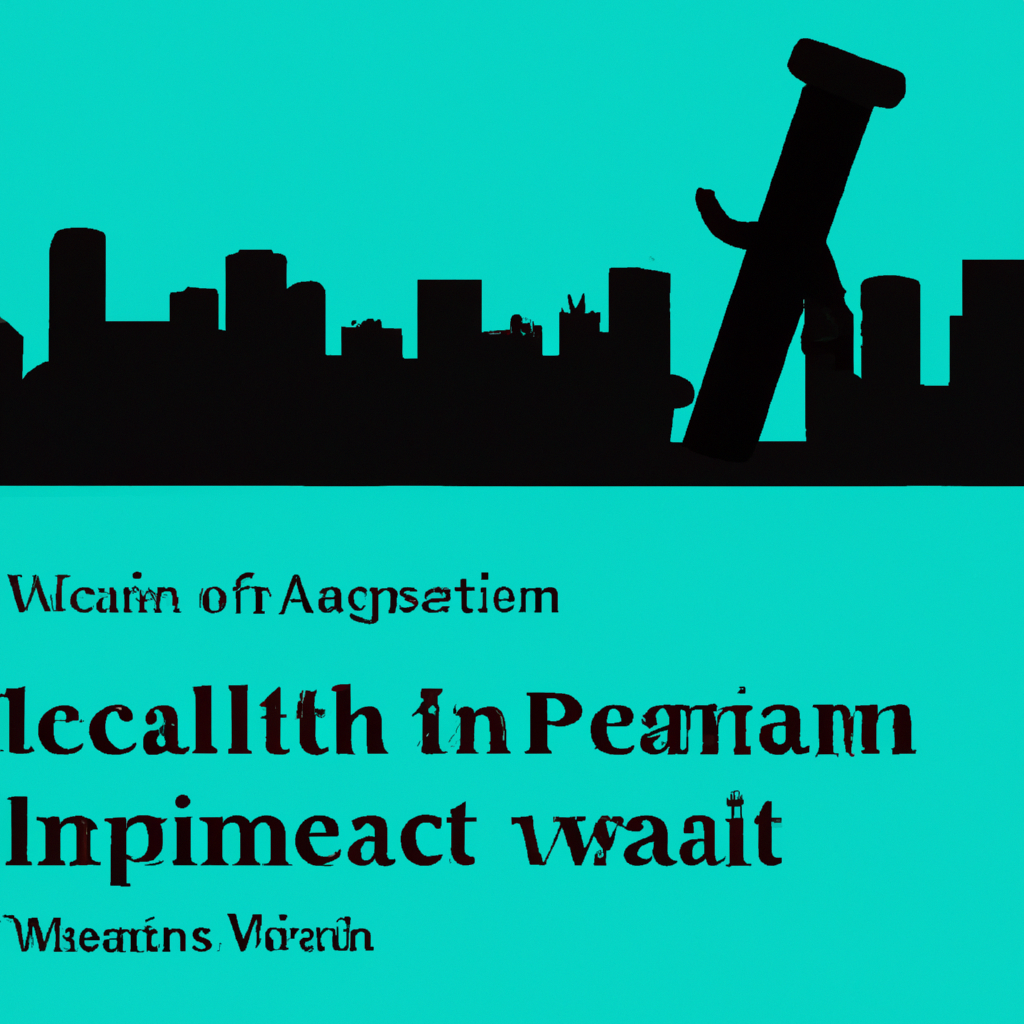Criticisms of income redistribution

Criticisms of income redistribution stem from concerns about its impact on incentives and economic growth. Detractors argue that redistributive policies may discourage hard work and create a dependency on government assistance. They contend that taking resources from high-earners stifles innovation and entrepreneurship, reducing overall productivity. Moreover, critics suggest that income redistribution may breed a sense of entitlement and discourage personal responsibility. They argue that individuals should be afforded the freedom to keep the fruit of their labor and make their own choices regarding charitable giving. Additionally, some critics raise concerns about the efficiency and effectiveness of government programs, citing potential waste, bureaucracy, and unintended consequences in redistributing wealth. These criticisms contribute to ongoing debates surrounding income redistribution and its implications for society.
Read more
Social impact of wealth redistribution

Wealth redistribution has been a subject of intense debate due to its wide-ranging social impact. As the wealth gap widens, this redistribution aims to mitigate the stark disparities faced by different societal strata. On one hand, it offers a glimmer of hope to marginalized communities, alleviating their financial burdens and fostering a more inclusive society. Education and healthcare, for instance, become accessible to those previously disadvantaged. On the other hand, this redistribution has also raised concerns about disincentivizing hard work and innovation, potentially stifling economic growth. Striking a balance between promoting equity and incentivizing individual effort remains a central challenge in ensuring the long-term positive social impact of wealth redistribution.
Read more
Political implications of wealth redistribution

The political implications of wealth redistribution are vast and multifaceted, igniting passionate debates and stirring deep emotions among individuals and societies alike. This contentious issue brings into focus the delicate balance between economic equality and individual freedom. Advocates argue that redistributive policies promote social justice, working towards narrowing the gap between the rich and the poor, fostering a more inclusive society. Conversely, opponents assert that such measures can stifle economic growth and discourage entrepreneurship, hindering the very prosperity they aim to achieve. As political ideologies clash and power dynamics come into play, the implications of wealth redistribution become a pivotal dividing line, revealing the different visions societies hold for their future.
Read more
Economic impact of wealth redistribution

Wealth redistribution, a notion entangled in economic and moral debates, bears significant impact on an economy. By its very nature, it seeks to bridge the gap between the affluent and the disadvantaged, fostering a more equitable society. The consequences of wealth redistribution ripple across various aspects of economic life, often evoking strong emotions and divergent opinions. Advocates argue that it can boost economic growth, enhance social stability, and reduce inequality. However, critics caution that excessive redistribution can impede incentive structures that drive innovation and entrepreneurship, potentially stifling economic progress. The delicate balance between fostering fairness and nurturing economic dynamism forms the core of the ongoing discourse on the economic impact of wealth redistribution.
Read more
Drawbacks of wealth redistribution

Wealth redistribution, often seen as a solution to economic inequality, can have unforeseen drawbacks. While its intention may be noble, the process itself can lead to a decline in incentives for productive work. When wealth is forcefully taken from the affluent and given to those less fortunate, it can breed a sense of entitlement and dependency among the receivers. Moreover, wealth redistribution undermines the concept of individual freedom and personal responsibility. It disregards the fact that hard work, innovation, and risk-taking are essential drivers of economic growth. Ultimately, it stifles initiative and innovation, threatening the very foundations of a prosperous society.
Read more
Methods of wealth redistribution

Methods of wealth redistribution are diverse and often complex, aiming to address economic disparities and promote a more equitable society. One such approach is progressive taxation, whereby higher income earners are taxed at a greater percentage, allowing resources to be redirected towards social programs and public services that benefit lower-income individuals. Another method involves implementing wealth transfer initiatives, such as inheritance taxes or estate taxes, which ensure that accumulated wealth is distributed more evenly across generations. Additionally, social welfare programs, including income subsidies and universal healthcare, can uplift marginalized communities by providing access to essential goods and services. Through these multifaceted strategies, societies strive to bridge the wealth gap and build a more inclusive future.
Read more
Impact of wealth redistribution on society

Wealth redistribution, at its core, represents a transformational force chiseling away at the foundations of societal inequality. As the fortunes of the few are shared with the many, a ripple effect surges through communities, leaving trails of empowerment and opportunity in its wake. It is a relentless effort to bridge the ever-widening chasm between the haves and have-nots, as it epitomizes the empathy and solidarity we must foster in our society. With wealth more equitably distributed, marginalized voices rise, stamped with newfound agency to challenge outdated power dynamics. A reinvigoration of the social fabric emerges, infused with hope and potential, where individuals can dare to dream beyond the constraints of circumstance.
Read more
Criticisms of wealth redistribution

Critics of wealth redistribution argue that it hampers individual incentives to work hard and achieve success. They contend that redistributive policies disincentivize productivity, as individuals may rely on government assistance instead of striving for personal advancement. Moreover, opponents claim that wealth redistribution can discourage innovation and entrepreneurship, as it reduces the potential rewards for taking risks and developing new ideas. Some critics also argue that these policies can cause economic stagnation by stifling the free market and impeding wealth creation. These concerns reflect the belief that equal distribution of wealth may overlook individual differences in abilities, ambitions, and choices, ultimately discouraging economic growth and personal achievement.
Read more
Benefits of wealth redistribution

Wealth redistribution holds immense potential to alleviate societal inequalities and foster a more just and equitable society. By reallocating resources from the wealthy few to the marginalized many, it ensures that basic needs are met, paving the way for equal opportunities. This redistribution creates balanced access to quality education, healthcare, and infrastructure, allowing individuals to thrive regardless of their background. Moreover, it cultivates social cohesion by reducing the glaring wealth gap, enabling communities to come together and tackle shared challenges. Ultimately, wealth redistribution promotes a sense of solidarity, compassion, and fairness, laying the foundation for a compassionate and inclusive society.
Read more
Income redistribution policies

Income redistribution policies refer to government measures aimed at reducing economic inequality by redistributing wealth and resources from higher-income individuals or groups to lower-income individuals or groups. These policies typically involve progressive taxation, in which higher-income individuals are taxed at higher rates, and the implementation of social welfare programs that provide assistance and support to those in need. The goal of income redistribution policies is to promote social justice, reduce poverty rates, and ensure that everyone has access to basic necessities and opportunities. Critics argue that these policies may discourage individual initiative and hinder economic growth, while proponents assert that they are crucial for creating a more equitable society.
Read more












